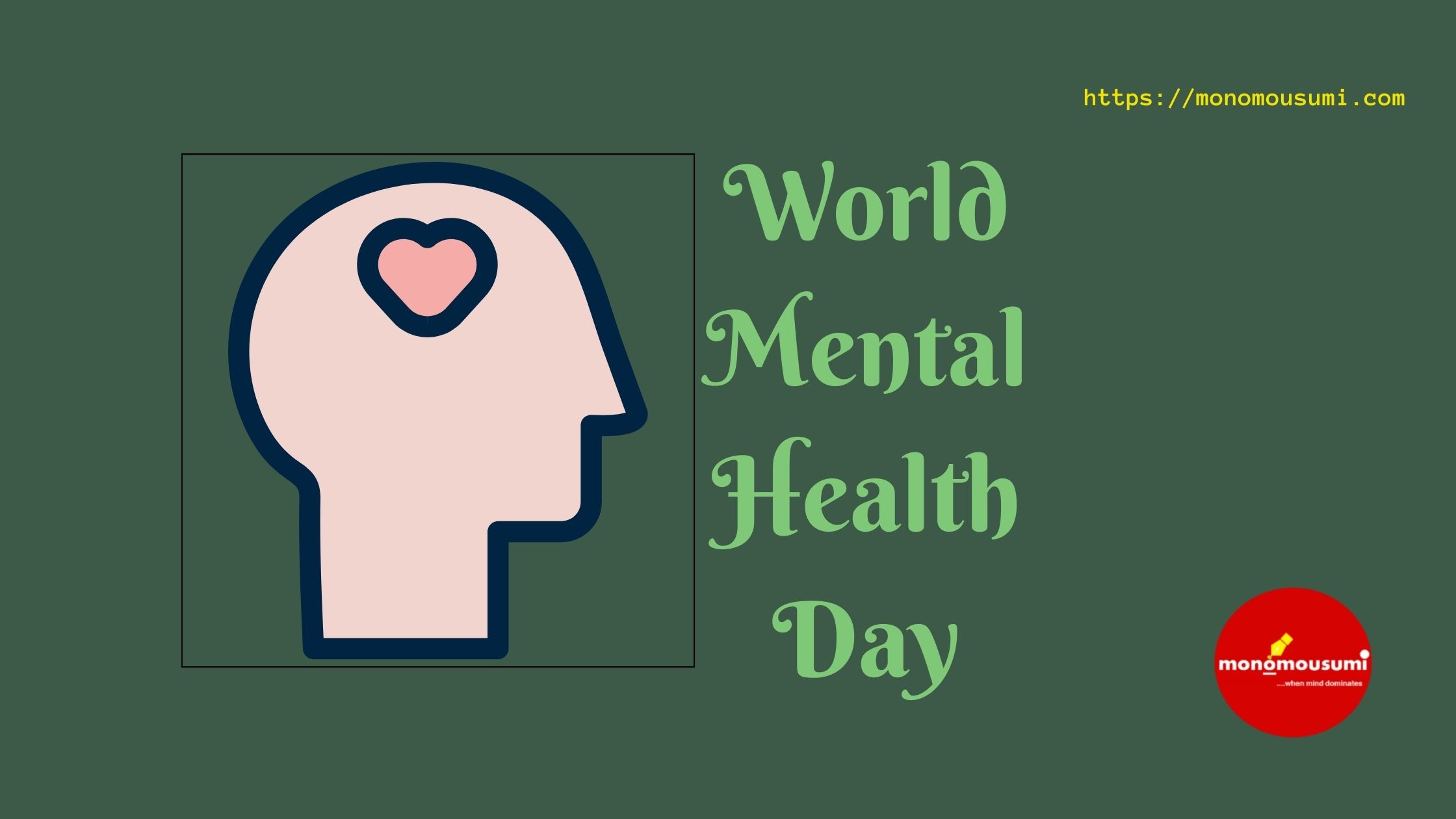
Your own mind and thoughts can bother more than anything in this world. In fact, others seem to be bothering you but it is not others, it is your own mind which is disturbing you recalling the things which made you feel sad or anxious. We all talk about special days and dates which we celebrate but we can only celebrate it if we are cheerful and positive. But very few of us talk about mental health and the state of being positive. World Mental Health Day is observed on 10th October every year to create awareness about the importance of mental health and disorders. Many of us don’t assume mental health as important and a serious issue and some of us don’t even know what mental health is all about. At every stage of life either it be childhood, adolescence or adulthood taking care of your mental health is extremely important. It also influences how we handle stress, relate to others and make choices. Mental health is often associated with disgrace and discrimination.
Mental health is equally important as physical health and one should never neglect it. It is not only about mental illness or mental problems; this is just one part of a bigger picture. According to the World Health Organization if an individual is mentally strong, he can cope up with any stress and depression that he or she faces in life and can work effectively and fruitfully. Being mentally healthy means being resilient and able to cope with difficult times like feeling in control, being confident, feeling good about yourself, managing and expressing your emotions, building and maintaining good relationships. We all experience some phases when we feel stressed, worried, anxious, sad, afraid or angry; these are all normal emotions. However, when these emotions become severe enough that it interferes with the person’s ability to function daily and these feelings become persistent over time then it can develop into a mental health problem. There are many different types of mental disorders, but when left untreated mental disorders can be chronic and long lasting and are associated with increased disability. They crucially have an impact on daily functioning and frequently interfere with family, social and work responsibilities. Fortunately, there are effective treatments and evidence-based interventions available and the aim to help individuals understand and cope with symptoms of mental illness. However, only a few people with mental disorders access existing treatment services. This may be due to barriers such as the stigma attached to seeking help, the lack of understanding of mental health problems, unreliability of how to get help or the fear of disclosing mental health problems. Research shows that stigma remains one of the biggest factors preventing people from seeking help for their mental health problems and getting the appropriate support they need.
India is the most depressed country in the world, followed by China and the US, as per a 2018 report by the World Health Organisation. India has a population of around 135 crores, out of which 6.5% people are suffering from some or the other form of mental illness. 6.5% that is around 8.5 crore people. This is higher than the total population of South Africa. Out of these around five crore people suffer from depression. And rest, around three crore suffer from anxiety disorders including panic attacks, phobias, post-traumatic stress disorder and obsessive-compulsive disorder. WHO estimates that around 21 people are committing suicide per one lakh people. In fact, India has the highest number of teenage suicide rates globally. The rate of student suicide has increased by 52% from what it was in 2007. Around half of corporate employees in India suffer from anxiety or depression. And the economic loss due to mental health conditions of India between 2012-2030 is estimated to be 1.03 trillion dollars. All these crazy numbers are alarming. But it is a surprise to know that amongst these, most cases go unreported. According to the National Mental Health Survey, 2016, depending on the state, 70 to 92 percent of those in need of mental health care failed to receive any treatment. And the reason is, we don’t have enough mental health care professionals to handle this situation. According to WHO, in India for every ten-lakh people we have mere 3 psychiatrists, 0.7 psychologists. If compared to developed countries, they have 66 psychiatrists per ten-lakh people. This is not because India is a poor country, or because we lack anything. But it is because for us, as a society, mental health doesn’t hold that much of significance that other things do. In our country, the number of people who require mental healthcare, even though it is so high, but still mental health has forever been neglected. Mental health problems are spreading like an epidemic. But still this issue is being neglected as a whole country and its principal cause is the stigma, taboos and myths behind it. This fear exists amongst us of being stated mad, we are scared of that. If a person says that he is suffering from depression, he is anxious, he is not able to perform. Show him to a psychologist. If he is unable to sleep at night, and is not able to work during the day, then show to a psychiatrist, he might need medical help. “No no, he is not mad” would be the reaction of others because taking therapies and talking to a psychologist or psychiatrist assumes that the person is mental. If we have High BP, cholesterol, diabetes, we eat lots of medicines for them. Even for a common cold, we have cough syrups and what not. But the moment it is about mental health, we don’t want to share it with anybody, we don’t need anybody’s help. Most families don’t support you, so it doesn’t come as a surprise that the society and the government doesn’t care. Anyway, what is important to understand is that mental health is an integral part of our overall health. It is not just the mere absence of mental illnesses. Physical pain is much more apparent, so we get to know each other. But mental pain is less dramatic and enters slowly and it is much more common and much harder to bear. And mostly we don’t even get to know, but the major contributing factor to almost all physical illnesses is the emotional stress and other mental disorders. If one is happy from inside, it’s only then one’s body will be happy too. One can have headache because of mental illness. One can have stomach ache because of a mental illness. Brain controls all our body functions if there is any problem there, then the other body functions are bound to go off balance. Mental health problems are a rising issue among the have-nots as well. Research findings have highlighted that financial hardship, physical illness, lack of education or skill, lack of basic resources and inability to provide for one’s family to be major factor that contribute to mental illness and suicide among the impoverished and the underprivileged. See, the solution has to come at multiple levels. Firstly, we need to create awareness. Government should come up with policies where they actually on a practical basis create this awareness through media. So that people could get rid of that fear of being called mad and the required treatment is started. Secondly, the educational institutions have a very big role to play. Take a glance at the pathetic situation in schools. Every school has just one school counsellor for around 2000 to 4000 kids. In rural health, the status of mental health is zero. Similar to how there are Anganwadi workers, and along with them there are medical health workers, there should be mental health workers too. So that survivors can openly share their stories, battlers gain courage out of them, and we help each other grow stronger and overcome our past and move forward with big smile on our faces. We should spread awareness about mental health so that the people suffering from mental illnesses can be helped at the earliest.
By Saiesha Berera, Faridabad


